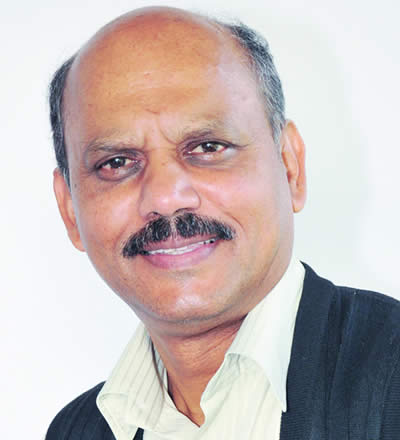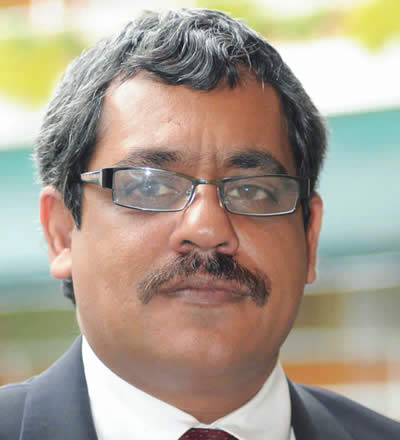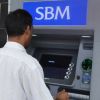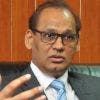
The year 2019 is seen as an election year, with the Government embarking on the last leg of its five-year mandate obtained in December 2014. The economic performance in 2019 will inevitably have an impact on the election campaign that will definitely mark this New Year. However, there are four major events taking place before the general elections.
Publicité
Any new year comes with hope for a better tomorrow, and there is much optimism for the year 2019 on the economic front. Economic indicators at the end of 2018 were rather encouraging, and everything suggests that the country is on the right track for better growth. But what makes the year 2019 stand out is that it marks the end of the mandate of this Government, and expectations will be very high among the population, especially with regards to the next budget measures, to be announced ahead of the next general elections.
Moreover, the Prime Minister has already recently given a first hint, promising a future hike in old-age pension, without revealing the amount of the rise. In addition, four major events taking place in 2019 will have tremendous economic and more importantly political impact: the appeal to be heard by the Privy Council in the MedPoint case, the 2019/2020 National Budget, the 10th Indian Ocean Islands Games and the entry into operation of the Metro Express.
Although some sectors, such as tourism, construction or the real estate, will undoubtedly continue to flourish this year, others might face severe challenges: the agricultural sector is going through difficult times, and sugarcane planters are not reaping what they deserve; SMEs, increasingly confronted with international competition, are being forced to innovate, despite their limited means; the manufacturing sector is in decline and the Freeport sector is beginning to show signs of weaknesses. Public investment will, however, continue to grow, but there is a risk that private investment will stagnate, as during pre-electoral periods, investors generally tend to wait for the installation of a new government to see the new economic orientation before investing.
With the entry into operation of the Metro Express scheduled for September 2019, a new feel-good wave is likely to sweep across the country, though bus employees fear a spell of redundancy if the transport system is reorganised to accommodate the Metro. With the start of the cyclonic season, rainy weather causing floods might induce protests from citizens, especially in regions where the drainage network has not expanded.
Regional and international events
Several regional and international events that will mark the year 2019 will certainly have an impact on our economy. The 10th Indian Ocean Islands Games will be held in Mauritius from July 19th to 28th, 2019, an event that will attract major attention. We should also note, at the international level, the holding of general elections in India, South Africa and Madagascar. The election results in India might give an indication of what may happen in Mauritius, because both Narendra Modi and Pravind Jugnauth have a few things in common: Both have emerged as visionary leaders trying their best to promote good governance, uplift the well-being of their respective nation, reform public institutions, attract investment and foster entrepreneurship but both seem to have teams doing the opposite, further alienating large sections of voters.
Development in the east
After real estate development gripping the north, south and west, the region of Palmar in the east of the country will now see large scale development as from 2019. Indeed, the Economic Development Board is inviting potential investors to express their interests. A Master Plan has been designed to develop an area of 310 acres of state land. Provision has been made for three hotels, two shopping complexes and an eco-tourism project, among others. One may also expect environmentalists to protest against the clearing of green vegetation to make way for concrete urbanisation.
Construction
In 2019, it again seems that the construction and real estate sectors will dominate the economy. In addition to major infrastructural projects under the Road Decongestion Programme, other hotel projects and residential complexes are planned under the Property Development Scheme. Meanwhile, the National Housing Development Company (NHDC) is diversifying its projects, following in the footsteps of the Mauritius Housing Company Ltd (MHC) by embarking on a new up market residential complex for the middle class in Cap Malheureux. There is also the construction of the Flacq hospital and the reconstruction of MedPoint hospital. Major ongoing projects, including the Metro Express and Smart Cities, will continue in 2019. The port and airport will also see phenomenal upgrades and expansions, respectively.
Financial services
In 2019, it appears that the Minister of Financial Services will further regulate the insurance sector, because he has recently revealed that more than 35% of claims have not been honoured by insurance companies. He has promised to intervene as such a situation could not continue. Regarding financial services, Mauritius does not appear on any blacklist anymore and the Economic Development Board has retained the services of an international consultant, Burson Cohn & Wolfe (BCW), to restore the image of this sector. The firm will have the task of setting up a communication strategy to further develop our financial centre and promote Mauritius as a robust and transparent platform.
What else to expect?
After the recent granting of two additional radio licences, private television may become a reality in 2019, if the government respects its own 2014 electoral programme. The advent of private television was one of the ten commandments of its election manifesto. In terms of democracy, the long awaited Freedom of Information Act is still pending, as well as the Disability Bill, the launch of the National Employment Agency and the setting up of a 'Hotel Investment Trust' to democratise the ownership of hotel companies.
Amar Deerpalsingh: “There is still much to do for SMEs”
The chairman of the Federation of Small and Medium Enterprises, Amar Deerpalsingh, hopes there will be fewer problems and more support for SMEs next year. According to him, much remains to be done for the development of SMEs in Mauritius. He mentions a flagrant case of discrimination against Small and Medium-Sized Enterprises compared to large firms that export because they can pay a basic salary of only Rs 8,140. “The wage burden is lower for exporting companies but they can compete with SMEs in the local market. This is a serious anomaly to be corrected,” explains Amar Deerpalsingh.
He also reveals that the profits of the ten largest companies in Mauritius exceed the amount of SME financing and regrets that large companies, instead of engaging in new or non-existent products and services, tend to do the same thing as SMEs, thus competing against them.
Amar Deerpalsingh explains how local manufacturers are subject to a host of compliances with standards while imported products are not subject to the same level of compliances. “It’s an additional cost for SMEs to be up to standard but low standard imports become unfair competition.” He adds that SMEs also have to undergo a lot of red tape, which has a cost, while the international trend is towards deregulation in favour of SMEs to support them. “If you fail to submit a return, you pay the same fine irrespective of your size or turnover. It’s also easier and cheaper to import than to produce locally,” he says. He expects authorities to address these issues.
 Radhakrishna Sadien : “Our 2019 priorities are ready”
Radhakrishna Sadien : “Our 2019 priorities are ready”
If the political world will be in full effervescence in 2019, trade unionists will also not rest. Radhakrishna Sadien, chairman of the Government Services Employees Association, has already worked out his main priorities for this New Year. Sadien, who wants to push for union unity and an aligned vision for a better bargaining power, says he will fight for the next Pay Research Bureau (PRB) report to be released before the end of 2019. “Then there is the issue of salary adjustment relative to the minimum wage,” he reminds.
The unionist also wants the Government to fulfill the pending promises of its electoral programme, namely the introduction of the Public Service Bill, the reform of the Public Service Commission for better transparency, the revision of labour laws to consolidate the rights of workers and the revamping of the Public Gathering Act, a law that is an impediment to civil liberties. He further explains that the development of any country is proportional to the level of its public service, so it is recommended to always recruit the best in order to have the best results.
 Zohra Gunglee: “Lay emphasis on productivity”
Zohra Gunglee: “Lay emphasis on productivity”
Zohra Gunglee, an economist and university lecturer, is not expecting major changes in 2019. “It will be mostly be business as usual,” she says, because the big projects already underway will continue. And what does she think of the next budget? “I am convinced that there will be no or very few populist measures. The Prime Minister has always demonstrated a high sense of responsibility and I doubt he will use the budget for election purposes.” Instead, she thinks that external factors would affect our economy, such as the price of fuel or imported raw materials. She wants more emphasis to be put on productivity. “Productivity is much more important than growth.”

Notre service WhatsApp. Vous êtes témoins d`un événement d`actualité ou d`une scène insolite? Envoyez-nous vos photos ou vidéos sur le 5 259 82 00 !






















